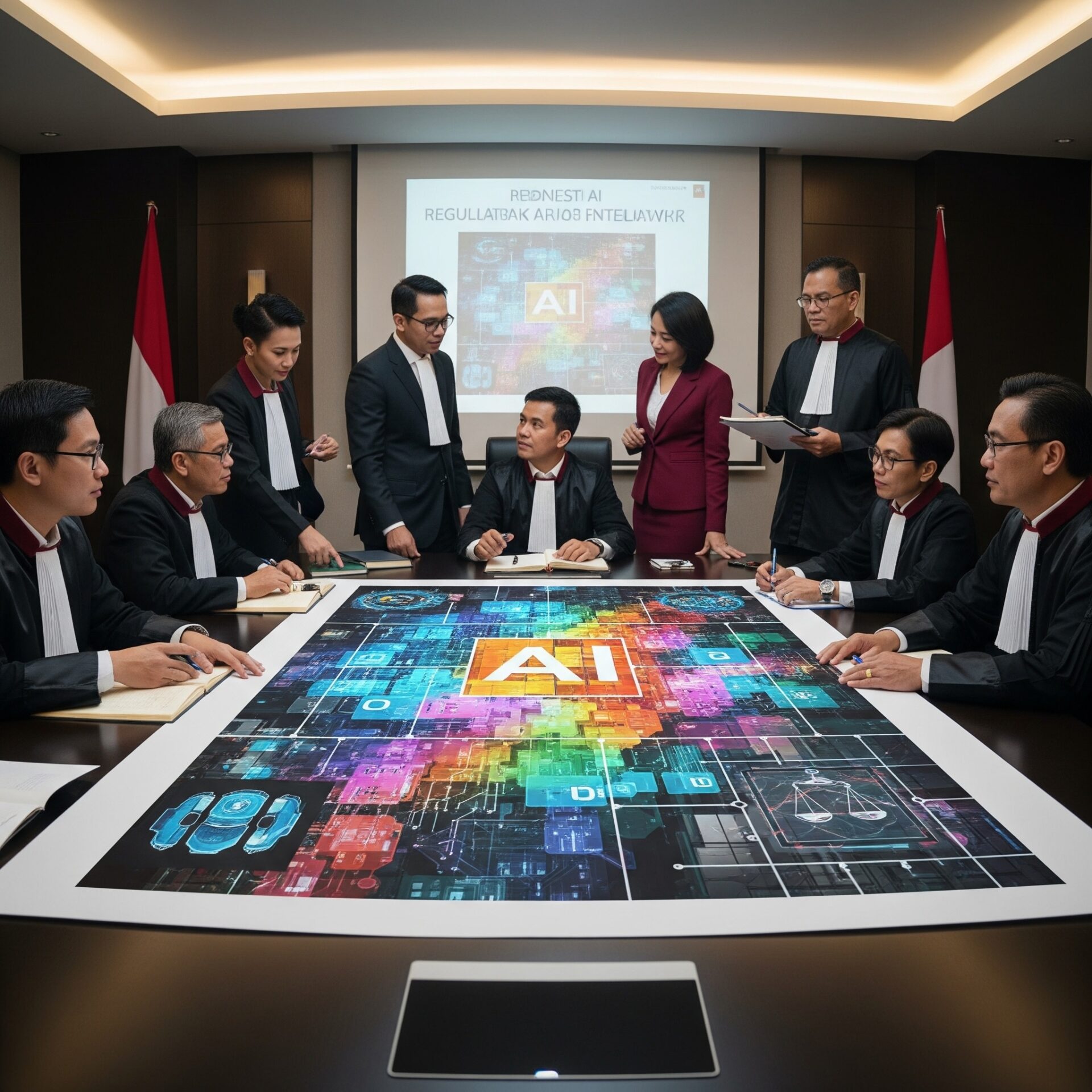Indonesia’s Ministry of Communication and Digital Affairs announced plans to release a national AI roadmap in August 2025 alongside enacting a Presidential Regulation (Perpres) to establish a comprehensive AI regulatory framework. This represents the government’s proactive response to bridge regulatory gaps amid rapid technological advancement.
Direct Regulatory Impact on Industry
Deputy Minister of Communication and Digital Affairs Nezar Patria confirmed that both the AI regulatory roadmap and Presidential Regulation are being developed simultaneously. The roadmap will provide AI technology development guidelines, while the Presidential Regulation will encompass practical regulatory measures covering AI ethics, technology adoption, data protection, and intellectual property rights.
Currently, Indonesia regulates AI indirectly through existing laws including the Electronic Information and Transactions Law, Personal Data Protection Law, and Copyright Law, but lacks dedicated AI legislation. The new regulations are expected to fundamentally transform AI adoption and operational practices across key industries including education, healthcare, transportation, agriculture, financial services, and mining.
The government plans to conduct global benchmarking by referencing regulatory cases from the United States, China, Japan, South Korea, and India, while adapting them to Indonesia’s unique social context. Notably, a sandboxing mechanism will be introduced to conduct phased verification of AI products in strategic sectors.
Corporate Compliance Requirements
Under the new regulations, companies must comply with ethical guidelines applicable to all public and private electronic system operators conducting AI-based programming activities. While the Ministry of Communication and Information’s Circular Letter No. 9, issued in December 2023, already outlined AI ethical principles, the new Presidential Regulation is expected to provide more specific and enforceable measures.
Companies must adhere to principles of inclusivity, humanity, security, accessibility, personal data protection, and sustainable environmental development, with recognition and protection of intellectual property rights emerging as core requirements. The financial technology sector will also be subject to additional guidelines from the Financial Services Authority (OJK).
The cost burden for regulatory compliance is expected to be substantial for businesses. Infrastructure investments will be necessary for ensuring AI system transparency, preventing algorithmic bias, and establishing data governance frameworks. Small and medium enterprises, in particular, are anticipated to face challenges in building compliance capabilities.
Industry Response and Strategic Approaches
Indonesia’s digital industry is showing cautious reactions to the regulatory introduction. The industry emphasizes the importance of finding a balance that ensures responsible AI utilization without hindering innovation. The government has also clarified its stance to “prioritize innovation principles and not impede emerging technological development.”
Companies have begun preparing regulatory compliance strategies. Key approaches include establishing AI governance frameworks, creating ethics committees, implementing employee training programs, and introducing technical documentation and audit systems.
Foreign investors welcome the regulatory clarity. Clear regulatory guidelines are expected to enhance investment predictability and facilitate long-term business planning. The government announced that $22 billion was invested in the digital sector in 2023, with projections indicating market growth to $210-360 billion in the future.
Alignment with Global Regulatory Trends
Indonesia’s AI regulation represents an effort to align with international trends including the EU AI Act, US state-level regulations, and Singapore’s Model AI Governance Framework. The regulations particularly reference OECD AI Principles and the US National Institute of Standards and Technology (NIST) AI Risk Management Framework.
At the ASEAN level, the recent release of AI Governance Guidelines is accelerating regional regulatory harmonization. As the G20 chair, Indonesia demonstrates its commitment to presenting a regulatory model for developing countries.
Ensuring compatibility with international standards is expected to facilitate both global companies’ entry into Indonesia and local companies’ overseas expansion. The government is ensuring bottom-up participation from industry, academia, and civil society in the regulatory development process to build an effective regulatory framework.

